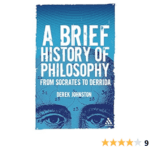Are you ready to embark on a journey through the profound teachings of one of history’s most influential thinkers? In this article, we will delve into the legacy of Aristotle, the renowned philosopher and scholar whose ideas have shaped the realms of ethics, metaphysics, logic, and politics. Prepare to unlock the secrets behind Aristotle’s greatest contributions and discover why his profound wisdom continues to captivate and inspire even after centuries. Join me as we unveil the essence of what Aristotle is best known for and unravel the timeless relevance of his powerful ideas.
What Is Aristotle Best Known For
As we unravel the captivating legacy of Aristotle, we step into a wondrous world of philosophy and scientific innovation. This esteemed scholar made groundbreaking contributions across numerous fields, leaving an indelible mark on the realms of ethics, metaphysics, logic, and politics. His vast intellectual range and relentless pursuit of knowledge have made him one of the most influential figures in history. So, what exactly is Aristotle best known for?
When it comes to logic, Aristotle’s influence is unparalleled. This revered philosopher is considered the father of Western logic, having developed a formal system for reasoning that laid the foundation for the discipline. He explored the intricacies of deductive reasoning and syllogisms, providing a framework for analyzing and constructing arguments. Aristotle’s logical insights continue to shape our understanding of reasoning and have had a lasting impact on philosophy and science.
In addition to his groundbreaking work in logic, Aristotle’s contributions to the field of psychology are significant. He regarded psychology as part of natural philosophy and delved into the study of the human mind and soul. Aristotle’s keen observations and introspective analysis shed light on various psychological phenomena, offering valuable insights into human behavior and cognition. His ideas on emotions, perception, and memory continue to inform contemporary psychological theories.
Aristotle’s immense body of work also extends to the natural sciences. He made pioneering contributions to fields such as zoology, physics, and meteorology, exploring the intricacies of the natural world with meticulous detail. From his taxonomic categorization of living organisms to his observations on the behavior of animals, Aristotle’s scientific inquiries laid the groundwork for subsequent advancements in biology and natural history.
When it comes to ethics, Aristotle’s teachings continue to resonate with profound wisdom. Central to his ethical philosophy is the concept of virtue and the pursuit of eudaimonia, or human flourishing. Aristotle emphasized the importance of developing virtuous character traits and engaging in ethical decision-making. His ethical theories continue to shape contemporary ethical frameworks, guiding individuals in their quest for a meaningful and fulfilling life.
Furthermore, Aristotle’s political thought has had a lasting impact on the development of political theory. He explored the nature of governance, the distribution of power, and the creation of just societies. Aristotle’s ethical insights intersected with his political philosophy, as he examined the relationship between individuals and the collective. His ideas on democracy, monarchy, and constitutional governance have influenced political thinkers for centuries and continue to shape the discourse on governance.
In his pursuit of knowledge, Aristotle founded his own school in Athens, known as the Lyceum. This institution became a hub of intellectual exploration, where scholars gathered to engage in dialogue and expand their understanding of the world. Aristotle’s commitment to education and the dissemination of knowledge laid the groundwork for the development of educational institutions and the pursuit of higher learning.
To summarize, Aristotle’s greatest contributions encompass a wide array of fields, ranging from logic and psychology to the natural sciences and ethics. His enduring legacy lies in his ability to distill complex philosophical concepts into accessible insights, making his ideas relevant and applicable across generations. As we unravel Aristotle’s remarkable achievements, we unlock a wealth of wisdom that continues to shape our understanding of the world and ourselves.
“Aristotle’s profound insights span across philosophy, science, and ethics, unveiling a legacy that continues to illuminate the depths of human understanding.”
Aristotle, one of the greatest minds in history, had a multitude of fascinating and captivating facts about his life and philosophies. From his studies under Plato to his profound impact on fields such as ethics, metaphysics, and politics, Aristotle’s contributions continue to shape the world we live in today. Delve into the intriguing world of Aristotle by exploring some interesting facts about him. Click here to uncover more about Aristotle’s captivating life and theories: Aristotle facts interesting.
Aristotle: Exploring the Wisdom of Practical Philosophy
[youtube v=”csIW4W_DYX4″]
Aristotle’s Insightful Exploration of Practical Wisdom
In his pursuit of understanding how things work, Aristotle, the renowned philosopher born in 384 BC in ancient Macedonia, made groundbreaking contributions across various disciplines. From tutoring Alexander the Great to establishing the Lyceum, Aristotle’s influence reverberates throughout history. While delving into diverse areas such as biology, ethics, and art, Aristotle pondered four major philosophical questions that continue to shape our understanding of life and society.
Unraveling the Key to a Good Life
Aristotle believed that the key to achieving a good life lies in embracing virtues. In his work “Nicomachean Ethics,” he identified eleven distinct virtues, ranging from courage and patience to friendliness and moderation. Aristotle emphasized the importance of nurturing these virtues within ourselves and respecting them in others. He described how each virtue lies between two extremes of character, finding its place in what he called the “golden mean.” By embodying these virtues, we can strive towards leading fulfilling lives and fostering prosperous societies.
“Virtue is the golden mean between two vices, and by cultivating virtues, we can unlock the path to a good life.”
Art as a Gateway to Emotional Catharsis
Tragedy held a significant place in ancient Athenian society, with plays by renowned playwrights such as Sophocles and Euripides captivating audiences. Delving into the purpose of such art, Aristotle introduced the concept of catharsis. By witnessing the sufferings and misfortunes of tragic heroes on stage, individuals could undergo a cathartic experience, a cleansing of their emotions. Tragedy served as a reminder that even the most virtuous individuals could face adversity, fostering compassion and a deeper understanding of the human condition.
“Through tragedy, we gain a powerful emotional release, cleansed of our fears and misconceptions, allowing us to embrace empathy and compassion.”
The Power of True Friendship
Aristotle identified three types of friendship: those driven by pleasure, those based on utility, and, most significantly, genuine friendships. True friendships, according to Aristotle, transcend self-interest and offer profound mutual support and understanding. Such relationships enable personal growth, broaden perspectives, and exemplify a shared journey towards virtue. True friends empathize, celebrate joys, and share sorrows, creating a bond that expands their individual worlds and enhances their characters.
“In true friendship, we find the foundation for personal growth, resilience, and a deeper sense of purpose.”
Mastering the Art of Persuasion
Despite logic and facts, the best argument doesn’t always triumph. Recognizing this, Aristotle delved into the art of rhetoric, aiming to equip thoughtful individuals with persuasion skills to reach those who disagree. His observations on human psychology and the impact of emotions on decision-making proved invaluable. Aristotle highlighted the significance of understanding and addressing people’s fears and emotions, employing humor and compelling examples to captivate audiences. By embracing these techniques, one can effectively convey ideas and sway opinions.
“Aristotle’s timeless advice on persuasion emphasizes the importance of connecting emotionally, using humor, and employing vivid illustrations to make ideas resonate.”
From unraveling the secrets to a fulfilled life to exploring the transformative power of tragedy, Aristotle’s wisdom continues to shape our understanding of the world and ourselves. By embracing virtue, compassion, and effective communication, we can strive towards personal growth and create a more harmonious society.
Note: The content of this article is inspired by an insightful exploration of Aristotle’s philosophy.
FAQ
Question 1
What are some of Aristotle’s major contributions to philosophy and science?
Answer 1
Aristotle made pioneering contributions to all fields of philosophy and science. He invented the field of formal logic and identified the various scientific disciplines and explored their relationships to each other. He also made significant contributions in various fields, including logic, zoology, physics, history of psychology, meteorology, ethics, and Aristotelianism.
Question 2
What is Aristotle best known for?
Answer 2
Aristotle is best known for his extensive works that cover a broad range of subjects, spanning the natural sciences, philosophy, linguistics, economics, politics, psychology, and the arts. He is considered the father of western logic and developed a formal system for reasoning. Aristotle’s intellectual range was vast, making him one of the most influential figures in history.
Question 3
What was Aristotle’s impact on the field of ethics?
Answer 3
Aristotle’s profound impact on ethics lies in his exploration of virtue ethics. He emphasized the importance of cultivating virtuous habits and living a life of moral excellence. Aristotle believed that virtue was the key to human flourishing and that individuals should strive to find the mean between excess and deficiency in their actions.
Question 4
How did Aristotle view psychology?
Answer 4
Aristotle regarded psychology as part of natural philosophy and made significant contributions to the field. He explored the nature of the soul, distinguishing between the rational and irrational aspects. Aristotle’s understanding of psychology laid the foundation for later developments in the field.
Question 5
What is the significance of Aristotle’s works in shaping Western intellectual history?
Answer 5
Aristotle’s works have had a lasting impact and shaped Western intellectual history for two millennia. His ideas and concepts continue to influence various disciplines, including philosophy, science, politics, and ethics. Aristotle’s meticulous analysis and systematic approach to knowledge have made his contributions invaluable to the development of Western thought.












